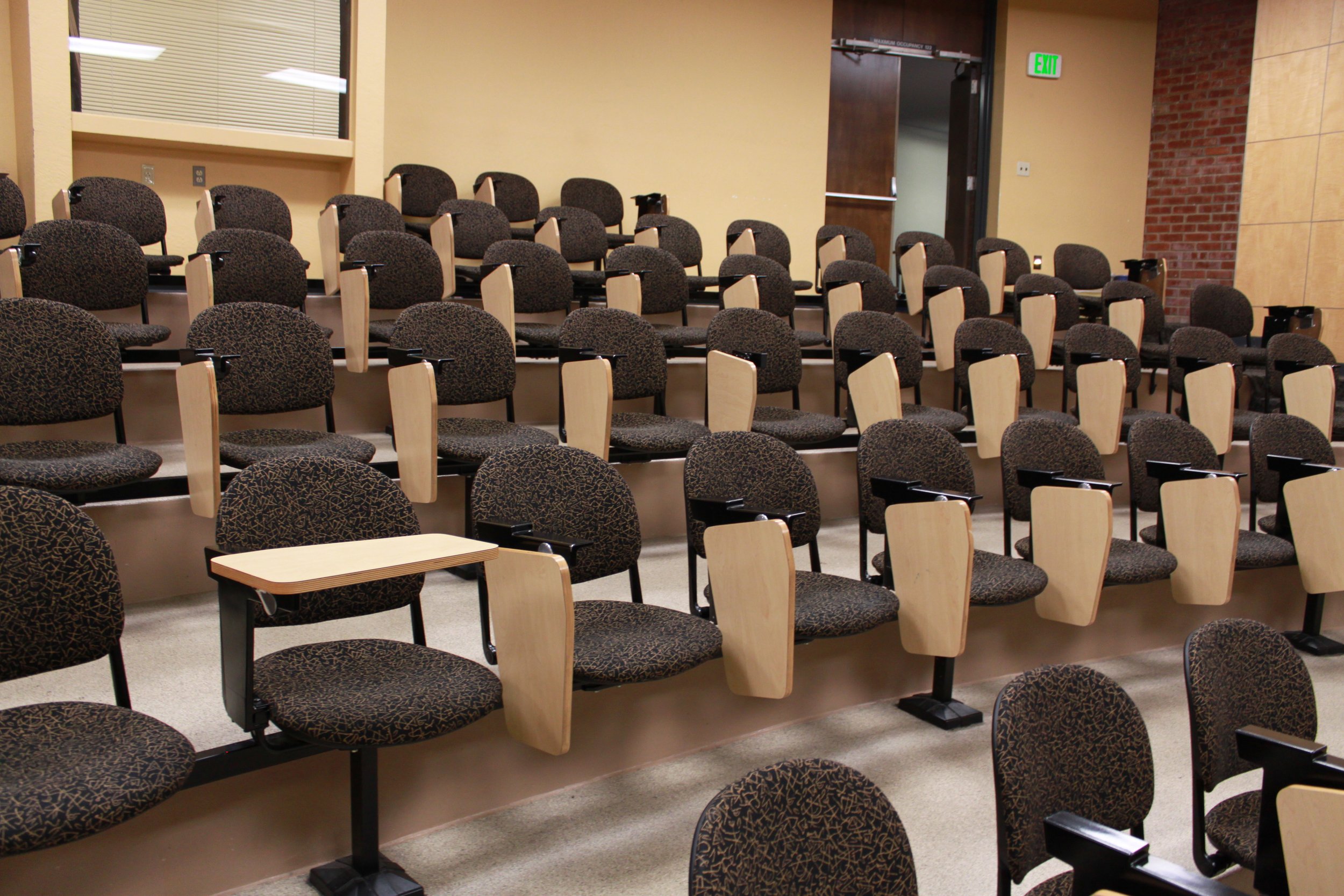Dugoni School Demands Change
Photo provided by Miranda Duarte
Will financial corruption overrule quality education?
Disclaimer: This article is intended solely for informational and journalistic purposes. It is based on publicly available documents and sources. This article aims to provide an objective account of the events occurring without any intent to harm, defame, or misrepresent any individuals or institutions involved.
At the start of the new year, Dean Nader Nadershahi resigned from his position as dean of University of the Pacific’s Arthur A. Dugoni School of Dentistry. In a comprehensive statement, the former dean reflected on his tenure, expressing both gratitude for the accomplishments made under his leadership and deep concern over the University’s direction under President Christopher Callahan. Dr. Nadershahi criticized President Callahan for prioritizing the financial needs of the main campus at the expense of the dental school’s educational mission, specifically citing the use of student tuition and clinic revenues to address broader university budget issues.
In response, the Dugoni Council issued a unanimous vote of no confidence in President Callahan, citing five key issues:
Excluding faculty from decisions affecting academic and clinical operations.
Disregarding the Council’s recommendations.
Providing misleading information ahead of key meetings.
Making leadership changes without considering operational consequences.
Undermining the school’s mission through the dean’s resignation.
A recurring theme in the Council’s statement is President Callahan’s control of information within the University. He has been accused of selectively sharing data with the Board of Regents to present an overly favorable impression of his leadership while concealing critical details. This past spring, Callahan issued a directive prohibiting deans from communicating directly with Board members without his approval, raising concerns about transparency and accountability. Multiple instances of bypassing and undermining Dugoni leadership were cited, including his decision to pause dental school enrollment expansion without notifying Nadershahi—who learned of it through a faculty-wide letter—and directly engaging department chairs on clinic matters without involving the dean.
Further compounding frustrations, a 13-page document outlined concerns over President Callahan’s decision to increase dental school enrollment by 20% despite inadequate facilities and resources. Faculty fear that this expansion, combined with Dugoni’s already highest-in-the-nation dental tuition, could financially burden students. The rising debt-to-income ratio for dentists is becoming increasingly alarming, particularly for Dugoni graduates. Deliberately increasing enrollment to resolve the university’s financial challenges risks burdening future graduates with excessive debt and long-term financial instability, while diverting funds from the dental school to the main campus. Although Callahan blamed Dugoni's leadership for delays in the expansion plan, internal advisory teams of over 50 faculty members, students, and staff had been working on solutions since the summer of 2024.
One of the most significant points of contention was the failed partnership between Dugoni and WellSpace Health, a major Federally Qualified Health Center in Sacramento. Under Nadershahi’s leadership, Dugoni negotiated an agreement to bring patients and clinical learning opportunities to the new Pacific Health Care Collaborative (PHCC). This partnership would have provided approximately $2.9 million annually to offset clinic costs and created a shared revenue model. Despite extensive planning and transparent communication with university leadership, President Callahan and the CFO intervened late in negotiations, demanding an additional $1 million in lease income. This move strained relations with WellSpace, which ultimately withdrew from the agreement just one month before PHCC’s student cohort was set to begin. Although WellSpace cited concerns over patient volume and clinical space, these issues had been addressed in earlier discussions, with many attributing the breakdown to the University’s last-minute demands.
In the town hall meeting of November 2024, President Callahan criticized the PHCC’s slow rollout, blaming others for delays and lamenting that the project’s setbacks reflected poorly on him. Over 200 faculty members and staff were in attendance and described his tone as “hostile.” They have since voiced broader concerns regarding Callahan’s leadership style, citing repeated attempts to undermine the dental school’s autonomy, discredit Dr. Nadershahi’s decades of service, and instill a climate of hostility.
External consultants from NYU, who had recently praised Dugoni’s clinic model, expressed bewilderment at Dr. Nadershahi’s resignation, underscoring his respected status in the broader dental education community. The Dugoni Council concluded its statement by urging President Callahan’s immediate removal and calling for an investigation into his administration.
While this article summarizes key issues, the original documents contain numerous additional examples of President Callahan’s alleged misuse of authority and detrimental interventions in dental school operations. In light of the serious allegations, growing faculty unrest, and mounting concerns from both internal and external stakeholders, the future of the Arthur A. Dugoni School of Dentistry—and its relationship with the broader university administration—remains uncertain.
At the heart of the issue lies a fundamental question of priorities: should the dental school’s mission of education, patient care, and community service be compromised for broader financial goals for the main Stockton campus? Faculty, students, and alumni have voiced a resounding call for transparency, accountability, and leadership that places the well-being of its academic community first. As the Board of Regents considers the Dugoni Council’s vote of no confidence and calls for an investigation, the coming weeks and months will prove critical in determining whether President Callahan’s administration can rebuild trust or if further leadership changes are inevitable. Ultimately, the outcome will not only shape the direction of the Dugoni School, but also define the University’s commitment to integrity and educational excellence.
Works Cited
“Information Regarding Dugoni School of Dentistry’s No Confidence in President Callahan.” Adobe Acrobat, acrobat.adobe.com/id/urn:aaid:sc:VA6C2:542bb7fb-247b-4db8-99cc-1a7ef0c37f46?fbclid=PAZXh0bgNhZW0CMTEAAaZgS4h1_1kXQKS_0ZcoYTIXvcDdNCsXG8i9dkZiYaOzK66ejXA9xpr5jhw_aem_xDwza3NZlp59V7UiEWL5AA. Accessed 2 Mar. 2025.

